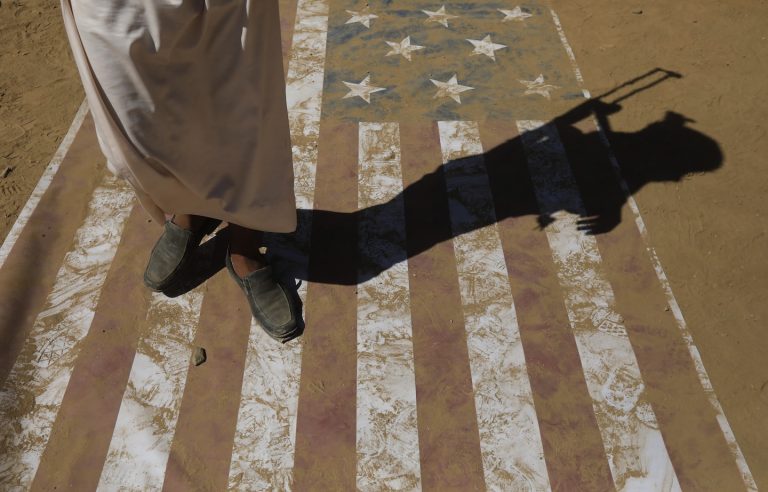Houthi rebels in Yemen have paralyzed global shipping through the Red Sea and sparked a US-led bombing campaign. Israel has launched limited strikes against Hezbollah in Lebanon and Iran-linked targets in Syria, including an attack on Monday south of Damascus that killed several people, according to reports.
Then, there is the most pressing challenge for Washington: A pro-Iranian militia based in Iraq claimed responsibility for a drone attack over the weekend that killed three American soldiers and wounded at least 34 others at a base along the country's border with Jordan. Syria. This is likely the deadliest attack on US forces since October, with Iranian-affiliated militias in both Iraq and Syria carrying out at least 160 attacks on US military targets. The United States carried out dozens of retaliatory strikes of its own. About 2,500 American soldiers are stationed in Iraq, and about 900 others in Syria.
President Biden indicated the need for an American response. “While we are still gathering the facts of this attack, we know that it was carried out by Iranian-backed extremist armed groups operating in Syria and Iraq,” Biden said in a statement. “We have no doubt that we will hold all those responsible accountable at the time and in the manner we choose.”
Regional leaders warn of widespread violence. Qatari Prime Minister Mohammed bin Abdul Rahman Al Thani said at a research center event on Monday during a visit to Washington: “We see that the situation is boiling here and there, and everyone is unfortunately dancing on the edge.” He added that the continued repercussions of the Israeli war on Gaza would undermine regional security and would even jeopardize the difficult project of indirect negotiations between Israel and Hamas, which is holding dozens of Israeli hostages, and which Qatar is trying to help mediate.
But regardless of fears of a brewing conflagration, hawkish Republicans called for escalation against Iran. Some lawmakers want to launch American attacks inside Iranian territory. “The only response to these attacks must be devastating military retaliation against Iranian terrorist forces, both in Iran and throughout the Middle East,” said Sen. Tom Cotton (R-Arkansas). “Anything less will confirm that Joe Biden is a coward who does not deserve to be Commander in Chief.”
Calmer heads may prevail in the White House, although the Biden administration must walk a difficult tightrope, with the storms of domestic politics on one side and the smoldering cauldron of the Middle East on the other. “We do not want a broader war with Iran,” National Security Council spokesman John Kirby said Monday. “We do not want a wider war in the region, but we have to do what we have to do.”
Analysts note that the United States may continue with “surgical” strikes on Iran-linked targets outside Iran — in other words, actions that prevent direct confrontation. The regime in Tehran asserts that it does not direct orders to many of its supposed agents, and is often unaware of their intentions and planned actions. The attack on the US logistics base in Jordan may have been part of a broader Iranian campaign, but it could also have been a lone opportunistic attempt by an Iraqi faction that has unexpectedly proven influential.
This plausible deniability is a deliberate strategy. “Iran is certainly trying to take advantage of the war in Gaza to highlight its transnational axis,” Sanam Vakil, director of the Middle East and North Africa program at think tank Chatham House in London, told my colleagues. Iran itself does not want to bear the cost of sponsoring the axis.”
Some hawks in Washington want to expose Iran's trick. But others stress that now is not the right time to escalate hostilities.
“As the United States advised Israel after October 7, based on the lessons America learned from its response to September 11, one should not allow an adversary to control its strategy and tactics,” noted Paul Salem, head of the investigation committee. Middle East Research Institute. “The United States will certainly respond to this latest Iranian-backed attack – as it should. But Washington should choose the extent and timing of this response according to its strategic priorities, not out of the urgency of the news cycle and the social media-driven political need for a knee-jerk reaction.
The risks are undoubtedly enormous. An open conflict between US and Iranian forces is likely to thwart hopes for a ceasefire between Israel and Hamas. This would almost certainly lead to a full-scale Hezbollah attack on Israel. It could turn local battles into a raging inferno in Iraq and Syria, and destabilize friendly regimes in Egypt, Jordan, and the Gulf.
but this is not all. An open confrontation between the United States and Iran would divide, perhaps permanently, Western democracies between those, such as the United Kingdom, that would support Washington, and those, such as France, Germany, and Italy, that might reasonably prioritize renewed diplomatic engagement with Iran. Tehran added. He added that this “will help China advance its anti-democratic geopolitical ambitions and Russia justify its aggression in Ukraine.”

